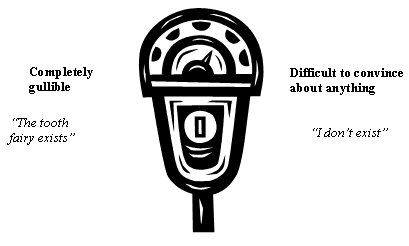The Science Of Scientific Writing Set 7 Set 7-Assessing • Second page • Third page • Fourth page • Example • Exercise 1 • Exercise 2 • Exercise 3 • Exercise 4 • Exercise 5 • Exercise 6 • Final Page Set 7.
OVERVIEW: The way to well-written science
PART I: Paragraphs and Sentences
SET A: Paragraphs: The Maps Behind Them
SET B: Paragraphs: Using Maps to Meet Readers' Expectations
SET C: Paragraphs with Something Extra: Points and Tails
SET D: The Generic Section: Expectations and Maps as Blueprints
SET E: Scientific Sections: The Methods and Results
SET F: Scientific Sections: The Discussion
SET G : Scientific Sections: The Introduction
SET H : Sentences
SET I : The Paper as a Whole
PART II: The Paper and its Sections
SET 1: Argument Parts
SET 2: Indicator Words
SET 4: Locating Arguments in Prose
SET 5: Rationale's Essay Planner
SET 6: Evidence in Arguments: Basis Boxes
Synthesis 1: Position-Early Paragraphs
Synthesis 2: Position-Final Paragraphs
Synthesis 3: Writing a Discussion I
Synthesis 4: Writing a Discussion II
Critical thinking is the active, skillful deployment of ways of thinking which contribute to truth or accuracy in judgment.
To understand critical thinking better, consider some of the things that uncritical thinkers do. An uncritical thinker:
- accepts things purely on faith
- thinks that a person's beliefs are "true for them" and can't be mistaken or criticized
- doesn't seek evidence or challenge beliefs.
By contrast, a critical thinker asks questions like:
- What am I being asked to accept?
- Should I accept it or not?
- Why? What are the arguments and how strong are they?
The Skepto meter
If we accept everything as a strong reason and anything as a good basis then we're completely gullible. But if we won't accept any reasons at all and reject every source of information then we're too skeptical.
Why it is important to apply critical thinking to your OWN arguments
Critical thinking is not something we only apply when we are analysing someone else's papers or arguments. It is extremely important to also take a hypercritical approach to your own thinking, both when formulating ideas about your results while doing experiments, and when you come to write them up. The primary reason for this is a well-known, but little understood, characteristic of humans: that we can be very blind to the deficiencies of our own thought processes. This blindness might be driven by a desire to obtain a result or merely by what may even be an instinct to find patterns in our world.
I became very much aware of my own problems in this area early on in my career, when I was studying cell structure, mostly via microscopy. There were so many times when I thought I had discovered some fascinating pattern, only, upon repeat of the experiment, to find that the pattern itself did not repeat. In the first few iterations of this phenomenom I thought that there must have been some change in the circumstances (e.g. different culture conditions) that was making the pattern disappear, and so Iwould try to find what it was about the original experiment that had allowed the pattern to occur.
After many painful attempts at this, I eventually realised that the patterns that come and go are often not the product of experimental variations, but could have their source in the fluctuations of my mind! There were some days when I just felt "over-eager" and it was then that my brain was most vulnerable to fashion some pattern that was most probably never there.
This drive to see patterns that do not exist can cause problems not only experimentally, but when one is writing or thinking. As an example, of this, in the years that I have been thinking about the principles behind good writing, I still also have many "over eager" moments. These typically take the form of some new realisation which suddenly appears to me as the vital key to the whole process. On later reflection, it's not that the new insight turns out to incorrect, but its significance within the scheme of things tyipcally shrinks to a surprising degree.
Content of this page drawn in whole or part from the Austhink Rationale Exercises with permission from Austhink.
